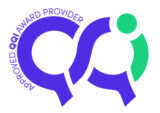With greater consumer awareness of food hygiene and safety issues the need is greater than ever for food processors to develop and maintain effective food safety management systems. To effectively manage the HACCP systems, they need to be reviewed an...
Read More
With greater consumer awareness of food hygiene and safety issues the need is greater than ever for food processors to develop and maintain effective food safety management systems. To effectively manage the HACCP systems, they need to be reviewed and audited (verified) on a planned frequency by trained auditors. Many internal audits are conducted in a haphazard manner providing very little useful information. As BRC identified supplier approval as one of the three areas of major expansion, second party auditing of one’s supplier, particularly high risk suppliers, is increasing in importance. Understanding the audit process is essential to efficiently audit, particularly when the audit duration may be limited.
Food and drinks companies are now subject to many regulatory and customer food safety audits. European Regulation 178/2002 requires HACCP as a legal requirement in all food business operations. Third Party Certification against the BRC protocol or ISO 22000/ISO 22002 is now almost mandatory for food businesses who wish to trade with European retailers and further processors of branded product. Effective auditing is the key to maintaining compliance with these standards.
A HACCP System is defined by the U.S. Food & Drugs Administration, (FDA), as ‘The firm’s HACCP related activities including HACCP training, Prerequisite Program and HACCP Plan.’ This model of a HACCP system has effectively been updated by ISO 22000 with the introduction of the concept of operational prerequisites.
This HACCP System model is effective in controlling food safety hazards as long as it is managed effectively via focused auditing. The prerequisite element of the HACCP system i.e. cleaning, personal hygiene, plant equipment and services etc. may often be overlooked with companies focusing most of their audit resources on the CCPs. This auditing course will focus on auditing of prerequisites, operational prerequisites and the CCPs to ensure the overall food safety management system is effectively managed.
Collapse



